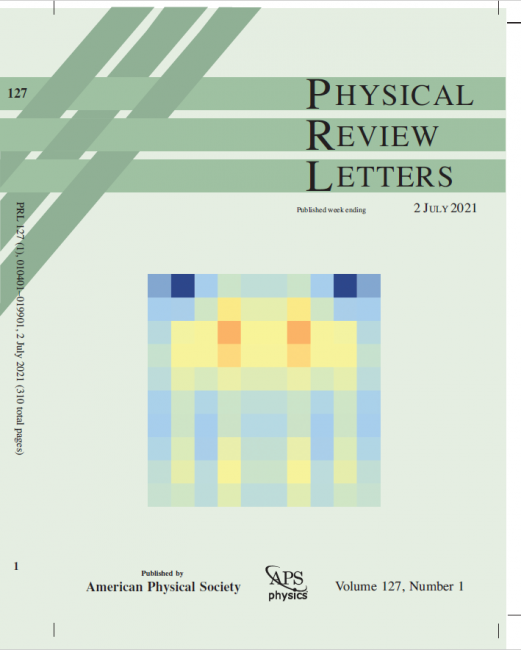Dipole-dipole frequency shifts in multilevel atoms
| Author | |
|---|---|
| Abstract |
Dipole-dipole interactions lead to frequency shifts that are expected to limit the performance of next-generation atomic clocks. In this work, we compute dipolar frequency shifts accounting for the intrinsic atomic multilevel structure in standard Ramsey spectroscopy. When interrogating the transitions featuring the smallest Clebsch-Gordan coefficients, we find that a simplified two-level treatment becomes inappropriate, even in the presence of large Zeeman shifts. |
| Year of Publication |
2021
|
| Date Published |
2021-06
|
| Journal Title |
Physical Review Letters
|
| Volume |
127
|
| Issue |
1
|
| Start Page or Article ID |
013401
|
|
PhysRevLett.127.013401.pdf725.65 KB
|
|
| DOI | |
| URL | |
| Download citation | |
| JILA PI | |
| Related Publications | |
| Associated Institutes | |
Journal Article
|
|
| JILA Topics | |
| Publication Status | |
| Publication Image |

|


 The Physics Frontiers Centers (PFC) program supports university-based centers and institutes where the collective efforts of a larger group of individuals can enable transformational advances in the most promising research areas. The program is designed to foster major breakthroughs at the intellectual frontiers of physics by providing needed resources such as combinations of talents, skills, disciplines, and/or specialized infrastructure, not usually available to individual investigators or small groups, in an environment in which the collective efforts of the larger group can be shown to be seminal to promoting significant progress in the science and the education of students. PFCs also include creative, substantive activities aimed at enhancing education, broadening participation of traditionally underrepresented groups, and outreach to the scientific community and general public.
The Physics Frontiers Centers (PFC) program supports university-based centers and institutes where the collective efforts of a larger group of individuals can enable transformational advances in the most promising research areas. The program is designed to foster major breakthroughs at the intellectual frontiers of physics by providing needed resources such as combinations of talents, skills, disciplines, and/or specialized infrastructure, not usually available to individual investigators or small groups, in an environment in which the collective efforts of the larger group can be shown to be seminal to promoting significant progress in the science and the education of students. PFCs also include creative, substantive activities aimed at enhancing education, broadening participation of traditionally underrepresented groups, and outreach to the scientific community and general public.